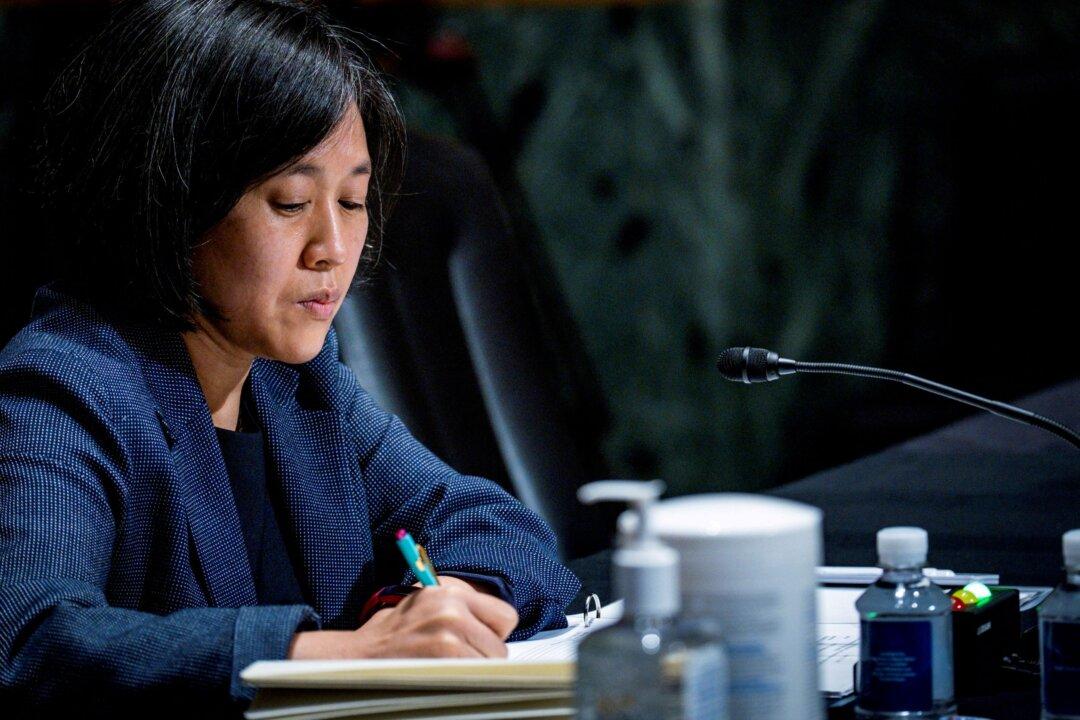China’s top trade negotiator Liu He pushed his U.S. counterpart Katherine Tai to cancel trade tariffs in a virtual meeting on Oct. 9 as the world’s biggest economies kick off negotiations following a lengthy break.
During the virtual talk, the Chinese side “negotiated over the cancellation of tariffs and sanctions, and clarified position on China’s economic development model and industrial policies,” a readout from China’s state agency Xinhua said. It described the exchange as “pragmatic, candid, and constructive.”





